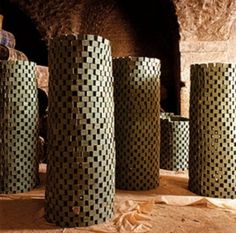As far back as 2800 B.C. during the times of the Babylonians was when the refined art of soap making was first documented. The origins of soap began in Babylonia, along with Mesopotamia, Egypt, Greece, and Rome. This can be better known as the Levant region, where modern day Turkey, Syria, Palestine, Jordan, and Egypt are. The first soaps of this time utilized simple ingredients of oils and ashes. However, they were not utilized to cleanse the human body as we primarily use it today. It was instead used to clean wool and cotton in the textile industry as well as for medicinal purposes.
Nearly 5000 years later, in 1550 B.C., the ancient Egyptians began to mix animal and vegetable oils along with salts to produce yet another type of soap. As time elapsed and neared the first century A.D. soap making had spread to the Phoenicians, Romans, and Celts. It was the romans who commercialized soap into providing cleanliness to the body with help from their running water aqueducts. By the 2nd century A.D., a Greek physician, Galen, began to promote its use to cleanse as well as provide medicinal benefits.
Over time Italy, France, and Spain became the centers of soap manufacturing as they had access to rich vegetable oils such olive oil. By 1662 soap manufacturing was in high demand and soap remained a luxury item for nearly 200 years. By the 19th century, tax was lowered on soap and became available to common households.
By the 1800’s vast discoveries and advancements to soap making were made by chemists who improved and altered the state of soaps to produce high quality soaps as well as milder versions for skin. With such improvements the quantity of soap making was also advanced and soap began to flourish as costs to produce the item was reduced.
But where did soap get its name? It is believed that the term soap was derived from Mount Sapo in Rome. This comes from a Roman myth back to when animals were sacrificed on the mountain. The animal fats were washed down the mountainside and mixed with wood ashes then collected into the clay at the bottom of the river Tiber. The women of villages along the river claimed the clay made an easy task of washing.
The art of soap has endured the test of time as it began its origins in the Levant region as an industrial and medicinal cleanser.Now, in modern times soaps have encompassed all aspects of cleanliness from skin to laundry to industrial uses. With what began simply for functional purposes, then turned into a luxury item by the mid 1600’s into the 1800’s, and in to today where we can browse a store shelf with almost endless choices of soaps. It has come a long way and has accounted for the overall improvement of sanitation throughout the centuries.
